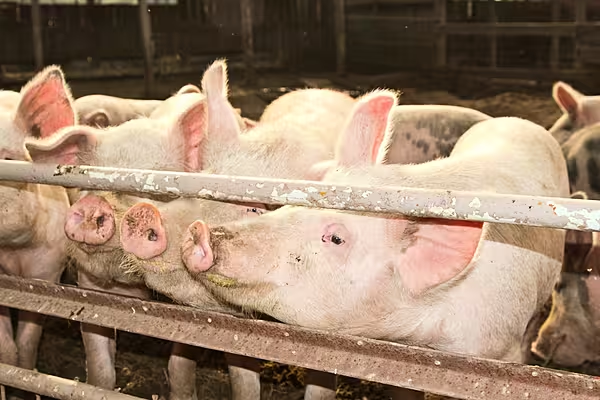China's pork output in the first quarter fell 29.1% from a year ago to 10.38 million tonnes, official data has revealed, as the world's biggest producer continues to feel the impact of the African swine fever that decimated its hog herd.
China's pork output hit a 16-year low of 42.6 million tonnes in 2019 after African swine fever, deadly to almost all pigs but not harmful to people, killed millions of hogs.
Some experts estimate China's sow herd shrank by at least 60% last year after the disease spread throughout the country, largely unreported, since 2018.
Farmers are trying to rebuild, but restocking takes time and pork output is expected to fall further this year.
Production over January to March was also hit by coronavirus-related curbs.
March Rebound
Slaughterhouses were shut for much of February after Beijing extended the Lunar New Year holiday to contain the virus outbreak, cutting slaughter volumes. They rebounded in March when farmers brought overweight pigs to market.
Still, pork prices remain very high with a year-on-year rise of 116% in March, pushing up consumer inflation.
The statistics bureau said China's pig herd fell 14.4% from a year earlier to 321.2 million head by the end of the first quarter, but was up from the 310.41 million head reported at end-December.
Sow herd at the end of January-March was 33.81 million head.
China slaughtered 131.29 million hogs over the period, down 30.3% from a year earlier.
Stabilise Prices
The government is trying to stabilise prices by releasing frozen pork from its state reserves, and has sold off almost 300,000 tonnes so far this year.
Imports have also soared to record volumes in recent months, with first-quarter arrivals close to 1 million tonnes, nearly double last year's level.
China's total meat output in the first quarter including pork, beef, lamb and poultry fell 19.5% to 18.13 million tonnes.
Poultry production was hit hard by measures to curb the coronavirus during its peak in February.











